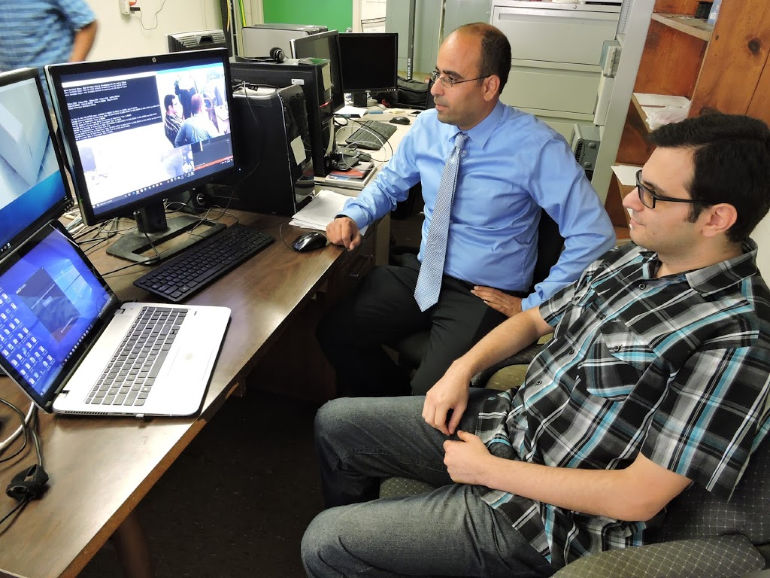After nearly eight years of hard work, Professor of Electrical and Computer Engineering Nabil J. Sarhan had his patent approved for an automated video surveillance system to keep people safer.
“My main motivation is that I want to make a difference in people’s lives,” said Sarhan. “Science is very important in making changes, and this is the kind of science we do at Wayne State.”

Most large-scale security systems have multiple, constantly changing displays monitored by humans. It is possible to miss a crime due to distraction or the wrong display being shown on a camera. Sarhan’s system, which he and his team are now deploying in the College of Engineering, is monitored entirely by computers.
According to Sarhan, who in the project’s early stages received a $290,000 National Science Foundation grant, many video surveillance systems are used to deter criminals and to view evidence after a crime. Sarhan’s patent works live; the system is constantly scanning for potential threats while allocating resources in such a way that optimizes the overall threat-detection accuracy.
The surveillance system uses technologies such as facial and license plate recognition to recognize threats using high-quality video that the computer will analyze. The system also allows for certain areas observed by the cameras to be placed at a higher level of importance. Major benefits include an increase in system coverage with a dramatically reduced cost due to lower bandwidth and energy needs.
“There are so many considerations that we take and then solve mathematically to get the video recordings in the best way possible,” said Sarhan. “It’s unique.”
Sarhan's strategy for making security systems more efficient stemmed from his research in designing multimedia systems. He specializes in multimedia, computer systems and networks, and computer architecture.
"We're applying a lot of similar principles to internet video streaming as we are to this security system, such as the idea of being smarter about how we use our resources," Sarhan said. "To be using this knowledge for security systems, however, feels like a more worthwhile pursuit.”
